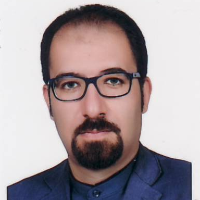The Addicted Experiences on Medicalization of Addiction
Author(s):
Abstract:
Objectives
According to an approach, addiction is a medical condition and considers people as patient, on the other hand, it is believed that addiction is a deviant behavior and an addicted is a deviator. The term of medicalization refers to a process by which non-medical problems and issues are defined as sickness or medical condition. This concept is often associated with the control of deviance and the ways in which deviant behaviors that were once defined as immoral, sinful or criminal have been given medical meaning. The main purpose of this paper is to find out the essence experiences of addicted people related to addiction as a deviant or as a medical condition. Method
The qualitative phenomenological approach is applied. By this method, the researchers seek to understand the concept of addiction as it is being experienced by the individuals. A purposeful sample of 9 male participants able to attend and respond to questions and admitted to the TC, (a health center, affiliated to the institution of Behzisty, for well-being addicted people in Isfahan - the second largest city in Iran) were recruited. Data was gathered by a means of an in-depth semi-structured interview with each partner separately. ‘The interview guide included demographic questions such as sex, age, marital status, geographical location, and medical history. The duration of interviews was between 30 to 70 minutes, all interviews were tape- recorded and were transcribed by researchers. The analysis of the data was used the phenomenological analytic method by Colaizzi including: a) all the subjects description were read to acquire a feeling for them b) it is attempted to return each protocol and extract significant statements related to term of addiction c) the meaning of each significant statement were spelled out by researchers, totally they were 124 codes (descriptive codes) d) in this stage, the formulated meanings were organized into clusters of themes, they were 35 codes (interpretative codes) e) the codes were integrated into an exhaustive description of the addiction, they were 7 codes (explanatory codes) f) the exhaustive description were formulated as a statement of identification of addiction, and g) the data by returning to some interviewees and asking about the finding were evaluated. However, the findings of the study are as follow.Findings
Three codes were identified as descriptive, interpretative and explanatory. Totally 124 descriptive codes were extracted, they were reduced to the 35 sub- descriptive codes, then 7 interpretative codes and finally 3 explanatory codes, They included ‘self-experience as patient’, ‘institutionally medicalized addiction’ and ‘socially criminalized addiction’. The explanatory code of self-experience as patient is extracted of two interpretative codes including ‘medical contexts of addiction and the medical symptoms of addiction’. The explanatory code of ‘institutionally medicalized addiction’ also is extracted of two interpretative codes including ‘medicalization of addiction care’ and ‘problems of addiction medical cares’. The explanatory code of ‘socially criminalized addiction’ also is extracted of two interpretative codes including ‘social functions of criminal approaches to addiction’ and ‘legally functions of criminal approaches to addiction’. Results
This study portrays that the community still looks at addiction as a criminal action, in this approach addiction is not quite medicalized and then it is not included any social benefit for addicted people. The addicted people may take benefits of medicalization of institutions which their main duties is related to addiction and additional behaviors. This study also shows that although in academic discussions and medical institutions addiction is considered as a medical problem and the addicted people believed themselves as patients the community tends to see addiction as a deviant behavior. In the other hand, there are divergences between community and institutions in definition of medicalization of addiction.Keywords:
Language:
Persian
Published:
Social Welfare Quarterly, Volume:7 Issue: 29, 2008
Page:
29
https://www.magiran.com/p1242939
دانلود و مطالعه متن این مقاله با یکی از روشهای زیر امکان پذیر است:
اشتراک شخصی
با ثبت ایمیلتان و پرداخت حق اشتراک سالانه به مبلغ 1,390,000ريال، بلافاصله متن این مقاله را دریافت کنید.اعتبار دانلود 70 مقاله نیز در حساب کاربری شما لحاظ خواهد شد.
پرداخت حق اشتراک به معنای پذیرش "شرایط خدمات" پایگاه مگیران از سوی شماست.
اگر عضو مگیران هستید:
اگر مقاله ای از شما در مگیران نمایه شده، برای استفاده از اعتبار اهدایی سامانه نویسندگان با ایمیل منتشرشده ثبت نام کنید. ثبت نام
اشتراک سازمانی
به کتابخانه دانشگاه یا محل کار خود پیشنهاد کنید تا اشتراک سازمانی این پایگاه را برای دسترسی نامحدود همه کاربران به متن مطالب تهیه نمایند!
توجه!
- حق عضویت دریافتی صرف حمایت از نشریات عضو و نگهداری، تکمیل و توسعه مگیران میشود.
- پرداخت حق اشتراک و دانلود مقالات اجازه بازنشر آن در سایر رسانههای چاپی و دیجیتال را به کاربر نمیدهد.
In order to view content subscription is required
Personal subscription
Subscribe magiran.com for 70 € euros via PayPal and download 70 articles during a year.
Organization subscription
Please contact us to subscribe your university or library for unlimited access!


